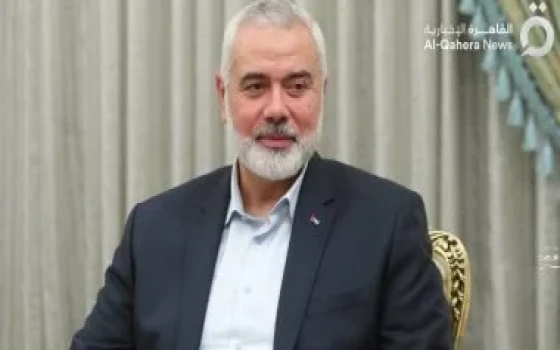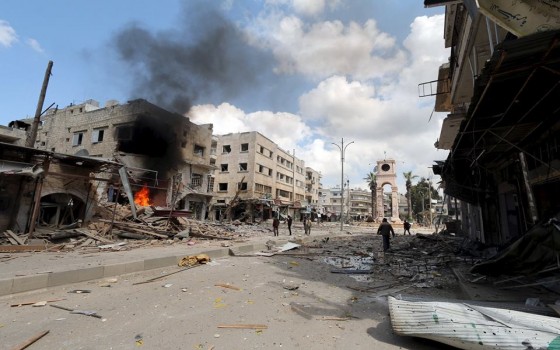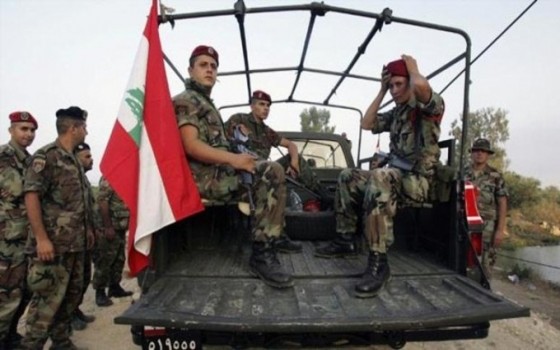
Fears of the Middle East sliding into a wider conflict following the assassination of Ismail Haniyeh

- Europe and Arabs
- Wednesday , 31 July 2024 11:26 AM GMT
Capitals: Europe and the Arabs - Agencies
The British newspaper "Financial Times" considered the assassination of the head of the political bureau of Hamas, Ismail Haniyeh, in an Israeli raid in Iran early Wednesday morning, an attack that greatly increases the risk of escalating hostilities in the region.
The newspaper said that the assassination of Haniyeh came hours after Israel announced that it had killed a senior Hezbollah commander in an air raid on the Lebanese capital Beirut, fueling fears that the region could slide into a full-scale war.
It stated that Israel did not immediately comment on Haniyeh's death and usually does not confirm or deny assassination attempts on foreign soil. Israeli officials had previously said that they would hold all Hamas leaders responsible for the attack that took place on October 7 in southern Israel.
For its part, Hamas said in a statement that Haniyeh - who was living in exile - died after a "treacherous Zionist" attack on his residence in Tehran. The Iranian Revolutionary Guard also confirmed the killing of Haniyeh in an attack in the Iranian capital, but did not provide further details.
The Financial Times reported that the Hamas leader attended the inauguration of the new Iranian president, Masoud Pezeshkian, on Tuesday and met him earlier.
The newspaper explained that Haniyeh, who had been the political leader of Hamas since 2017, is the most prominent Hamas member to be killed following the militant group’s attack in October and Israel’s retaliatory assault on Gaza. He was the main interlocutor for mediators trying to negotiate a ceasefire in Gaza and the release of Israeli hostages held in the Strip.
The newspaper indicated that Haniyeh’s assassination in Tehran would be a major embarrassment to Iran and risk the Iranian regime retaliating against Israel. Tensions in the region had already escalated after Israel announced that it had killed Fouad Shukr, a senior Hezbollah commander, in an airstrike on a residential building in southern Beirut last night.
In a statement on Wednesday, Hezbollah said Shukr was in the building targeted by Israel, but the party did not confirm his fate. The Israeli military described Shukr as Hezbollah’s most senior military commander and the right-hand man of Hassan Nasrallah, the leader of the Iranian-backed party.
At the same time, Hezbollah, which is considered one of the most heavily armed non-state actors in the world, had previously warned Israel against “any assassination on Lebanese soil against a Lebanese, Syrian, Iranian or Palestinian,” indicating that an Israeli strike would be met with a decisive response.
The British newspaper went on to say that there would be concerns about how Iran, which considers Hezbollah its most important proxy, would respond, especially if it is confirmed that Israel carried out the strike in Tehran that killed Haniyeh.
The assassination of the head of the political bureau of the Palestinian Hamas movement, Ismail Haniyeh, in Iran after he attended the inauguration of the new president, Masoud Pezeshkian, represents a severe blow to the Palestinian group and threatens to plunge the region into further conflict.
The New York Times indicated in its report that Ismail Haniyeh was a key figure in the stalled ceasefire negotiations between Hamas and Israel, and his assassination makes the prospects for reaching an agreement more uncertain, prolonging the war in Gaza that has claimed thousands of lives.
Over the past 24 hours, the Israeli military announced a separate strike on a Hezbollah commander in Beirut’s southern suburbs, with the target of the strike being Fouad Shukr, a senior official who serves as a close adviser to Hezbollah leader Hassan Nasrallah, according to three Israeli security officials.
The newspaper said that the targeting of two senior leaders of two Iranian-backed groups within hours represents a serious escalation in the region, which has been suffering from months of rising tensions since Israel launched its war on the Gaza Strip last October.
The response from the two groups is expected to determine the course of the conflict and whether it will plunge the region into war on multiple fronts, especially since Iran will hold an emergency meeting of the Supreme National Security Council at the residence of the supreme leader, according to Iranian officials.
The assassination of Ismail Haniyeh in Tehran a day after the inauguration of new Iranian President Masoud Pezeshkian prompted some Iranian media outlets and social media activists to demand a strong response from their leadership. Israel did not immediately comment on Ismail Haniyeh’s death, and Israeli Prime Minister Benjamin Netanyahu’s office asked ministers and Knesset members not to discuss the assassination.
Last April, Israel killed three of Ismail Haniyeh’s adult sons in airstrikes on the first day of the Eid al-Fitr holiday, while Hamas said seven people were killed in the strike, including four of Haniyeh’s grandchildren.
The Israeli army spokesman said Hezbollah was dragging Lebanon and the Middle East into escalation, adding: “We are prepared for the possibility of escalation on all fronts.” He added, according to Al-Qahira News Channel: "We do not seek war against Lebanon, but we are at war with Hamas and Hezbollah." He continued: We confirm the killing of the specific target in the southern suburb operation in Beirut, noting that Fouad Shukr was responsible for fighting against Israel since October 8. The spokesman for the occupation army indicated that there is no change in the instructions of the home front, adding: "Our army is waging war on all fronts."












No Comments Found